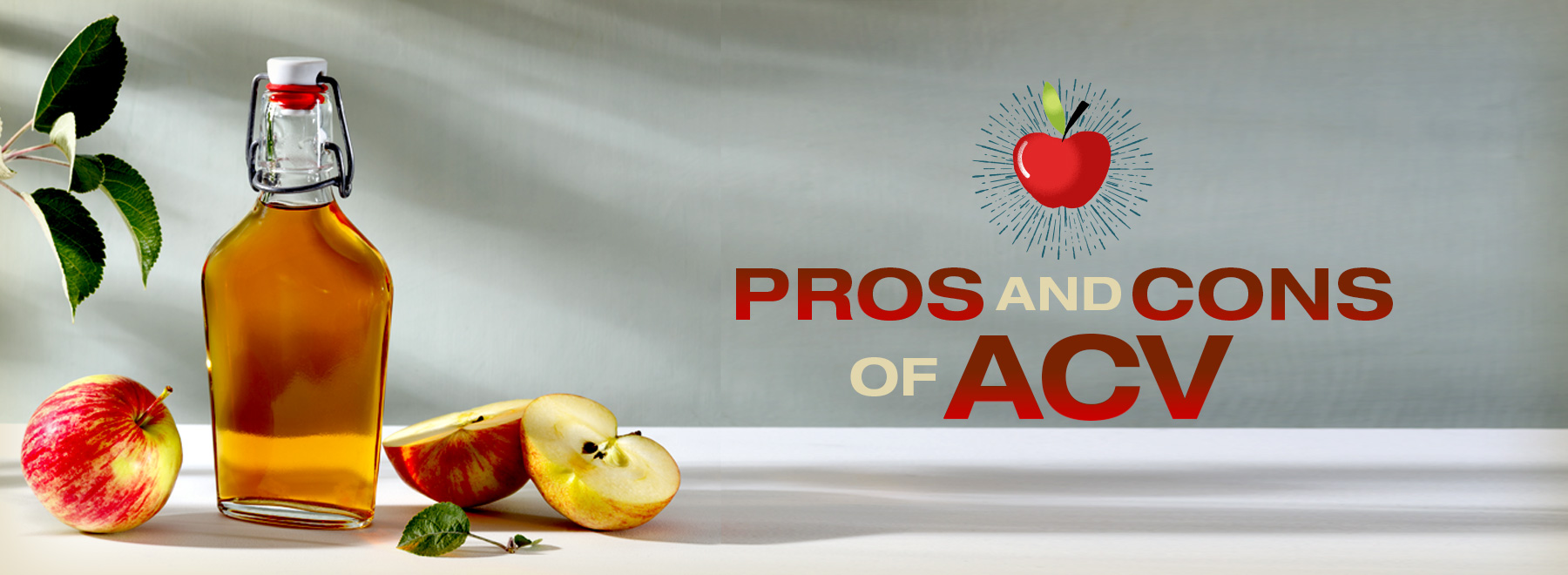Can a taste of apple cider vinegar a day keep the doctor away?
When it comes to your health, apple cider vinegar – sometimes used to put vegetables in a pickle – can also get you out of one. Or so it’s claimed.
It’s reputed to prevent diabetes, aid weight loss, whiten teeth, lower cholesterol and more.
But experts at the University of Mississippi Medical Center question some of the more sensational claims, while affirming others – with reservations.

“What people see and hear is that if they add apple cider vinegar to their diet, magic things happen,” said Dr. Josie Bidwell, associate professor and clinical director, preventive medicine, at UMMC. “And, unfortunately, it just isn’t the case.
“It sends the wrong message to say that just adding something to your diet will fix whatever ails you even if you don’t adjust your other lifestyle factors.”
A Lifestyle Medicine Clinician with a Doctor of Nursing Practice Degree, Bidwell periodically encounters patients who ask her if they should surrender to vinegar, “or they’re already using it,” she said.

Dr. Elena Dent, assistant professor in the Department of Preventive Medicine, a registered dietician who has a doctorate in physiology and biophysics, said she has patients who have asked her about the health benefits of ACV for more than a decade.
“It has its place,” said Dent, who is also the director of education for the Center for Integrative Health,” but I don’t believe the evidence shows that it will support all the claims you see on Pinterest and Facebook.
“I believe it can be a healthy component of a diet, but the best way to use it is on foods – for salads or pickling.”
When patients ask whether they should take ACV, both Dent and Bidwell ask them what their goals are – weight loss, lowering blood sugar, and so forth.
Often, patients have already been using it.
“So I usually ask also how long they’ve been doing it, have they been able to see any benefits, any side effects,” Bidwell said. “And I lay out the evidence for and against those things. If they are doing it safely, I have no problem with it.”
The majority in her clinic are hoping to lose weight or control their blood sugar, Bidwell said.
Some are eager to take ACV because it’s a natural product, as opposed to prescription medicine.
“Many patients want to get off their medications,” Dent said, “but there is no nutritional super food that you can take once or twice a day and fix everything.”
Both experts advise patients to talk first with their pharmacist or physician, and don’t abandon their prescriptions.
“I also ask them to make sure there are no interactions between their medicine and vinegar,” Dent said. “I don’t blame them for wanting to take something natural; it’s just a matter of needing to get more information. There’s still a lot we don’t know about the mechanisms of purported health claims.”
Here then are some of the supposed benefits of ACV, and whether you’ll need a grain of salt to properly digest them.
IT IS TO DIET FOR
“We’re very much focused on diet culture here in America,” Bidwell said. “We go on and off diets. We add this or that medication with a variety of goals in mind. The reality is that it’s a slow process; diets usually do not work in the long term.
“So when patients tell me they want to lose weight, I ask why. Are there reasons other than just a number? And I ask about their expectations, the amount they want to lose and if they have goal date in mind. Then we adjust if it’s not realistic for sustainable weight loss.”
One of the best-known studies linking vinegar (or its main component, acetic acid) and weight loss is encouraging, more or less. “It shows there is some benefit,” Bidwell said, “but dig a little bit deeper and you see there are some limitations.
“First of all, it’s just one study. You can find one-off studies that show benefits and some that do not show any.
“Second, the study was published in 2009, more than 10 years ago. And there is a small sample size.” Only 155 people participated in the entire study period.
“And it’s in Japan, which has a largely different diet that we do in the U.S. That gives me a little pause. The average calorie intake for each of three groups studied was about 1,800 calories per day; whereas, in America, it’s 2,000 to 3,000. And they consume about 55 grams of fat per day in Japan; we consume about 75 grams.”
The Japanese study, she said, showed there was “some modest weight loss”: The average over 12 weeks was 2 ½ pounds for those who drank one tablespoon of vinegar daily, and 4.2 pounds for those who drank two.
Those who consumed a placebo gained weight. For those who stopped consuming the vinegar, their weight rose again.
“We don’t eat nutrients in a vacuum,” Dent said. “You have to evaluate studies and use your common sense – if it’s working for someone, then ask, ‘what else is this person doing that may be contributing to their success?’”
IT LOWERS BLOOD SUGAR, CHOLESTEROL AND FAT
Published this year, an analysis of nine different studies looked at blood sugar, cholesterol and triglycerides (a type of fat or lipid) – and if acetic acid really takes them on.
The conclusion: With the consumption of apple cider vinegar, there was “a significant favorable effect” on blood sugar (fasting plasma glucose) and blood lipid levels.
“But there was a small reduction in blood sugar under this regimen,” Bidwell said.
The amount was about 10 mg/dL. “That can be motivating,” Dent said, “but I tell patients it’s not going to reverse their diabetes.”
The study also showed that there was no change in the good or bad cholesterol, Bidwell said. “For total cholesterol and [a major form of lipid called triacylglycerol], the benefits were most apparent for folks with type 2 diabetes.”
No study has concluded, however, that vinegar, including ACV, can prevent diabetes.
“If you have any chronic health conditions, including diabetes, heart diseases or kidney disease, talk to your doctor before you jump on this train.”
IT’S FOR VINEGARY FRESH BREATH
No, it is not.
“Undiluted, it’s terrible for the teeth and esophagus,” Bidwell said. It can damage tooth enamel. “It’s best to drink it with a straw so it doesn’t sit on the enamel.
“It also makes acid reflux worse,” she said. “People say it tastes terrible, and this is after the vinegar was diluted. And it always needs to be diluted.”
As do many people’s expectations, Bidwell said.
“With vinegar, you’re taking something that, by itself, tastes terrible for mostly small benefits. There are tastier ways to consume it. For one, add it to salads, and so you’ll also be getting the benefits of greens in your diet, including more vitamins and fiber.
“Add it to your vegetables. That’s usually where I try to steer folks toward.”
Using ACV – or any vinegar – can be useful for weight loss and lowered blood sugar – “if additional lifestyle changes are happening as well,” Dent said.
That means getting exercise. It means eating healthier. And, yes, she said, vinegars contain anti-oxidants, which can disarm substances that cause cancer and heart disease.
“But so do whole grains, legumes, fruits and vegetables – “especially those with vibrant colors,” Dent said. “And with those, you’re also getting the whole nutritional package, including fiber.”
You should also limit your intake of sweets and highly-processed foods, like packaged snacks, fried foods, sugary beverages, red and processed meats and saturated fats, Dent said.
Take action to reduce stress and get enough sleep. “Stress is associated with weight gain and increased blood sugar,” Dent said. “So you also have to address fully your mental health.”
When it comes to your diet and exercise routine, make changes that you can stick with, Bidwell said.
“Find something you’re confident you’ll be able to do the rest of your life. Add one more vegetable to your meals. Sub out French fries for a vegetable.
“You don’t have to completely give up sodas, for instance, but I do suggest that if you do drink them, at least reduce consumption.”
Such changes can make a difference you can see, she said.
And they’re less likely to leave a bad taste in your mouth.
The above article appears in CONSULT, UMMC’s monthly e-newsletter sharing news about cutting-edge clinical and health science education advances and innovative biomedical research at the Medical Center and giving you tips and suggestions on how you and the people you love can live a healthier life. Click here and enter your email address to receive CONSULT free of charge. You may cancel at any time.



